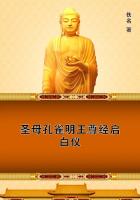There is perhaps too much disquisition and too little narrative; and indeed this is the fault into which, judging from the habits of Sir James's mind, we should have thought him most likely to fall. What we assuredly did not anticipate was, that the narrative would be better executed than the disquisitions. We expected to find, and we have found, many just delineations of character, and many digressions full of interest, such as the account of the order of Jesuits, and of the state of prison discipline in England a hundred and fifty years ago. We expected to find, and we have found, many reflections breathing the spirit of a calm and benignant philosophy. But we did not, we own, expect to find that Sir James could tell a story as well as Voltaire or Hume. Yet such is the fact; and if any person doubts it, we would advise him to read the account of the events which followed the issuing of King James's declaration, the meeting of the clergy, the violent scene at the privy council, the commitment, trial, and acquittal of the bishops. The most superficial reader must be charmed, we think, by the liveliness of the narrative. But no person who is not acquainted with that vast mass of intractable materials of which the valuable and interesting part has been extracted and condensed can fully appreciate the skill of the writer. Here, and indeed throughout the book, we find many harsh and careless expressions which the author would probably have removed if he had lived to complete his work. But, in spite of these blemishes, we must say that we should find it difficult to point out, in any modern history, any passage of equal length and at the same time of equal merit. We find in it the diligence, the accuracy, and the judgment of Hallam, united to the vivacity and the colouring of Southey. A history of England, written throughout in this manner, would be the most fascinating book in the language. It would be more in request at the circulating libraries than the last novel.
Sir James was not, we think, gifted with poetical imagination.
But that lower kind of imagination which is necessary to the historian he had in large measure. It is not the business of the historian to create new worlds and to people them with new races of beings. He is to Homer and Shakspeare, to Dante and Milton, what Nollekens was to Canova, or Lawrence to Michael Angelo. The object of the historian's imitation is not within him; it is furnished from without. It is not a vision of beauty and grandeur discernible only by the eye of his own mind, but a real model which he did not make, and which he cannot alter. Yet his is not a mere mechanical imitation. The triumph of his skill is to select such parts as may produce the effect of the whole, to bring out strongly all the characteristic features, and to throw the light and shade in such a manner as may heighten the effect.
This skill, as far as we can judge from the unfinished work now before us, Sir James Mackintosh possessed in an eminent degree.
The style of this Fragment is weighty, manly, and unaffected.
There are, as we have said, some expressions which seem to us harsh, and some which we think inaccurate. These would probably have been corrected, if Sir James had lived to superintend the publication. We ought to add that the printer has by no means done his duty. One misprint in particular is so serious as to require notice. Sir James Mackintosh has paid a high and just tribute to the genius, the integrity, and the courage of a good and great man, a distinguished ornament of English literature, a fearless champion of English liberty, Thomas Burnet, Master of the Charter-House, and author of the most eloquent and imaginative work, the Telluris Theoria Sacra. Wherever the name of this celebrated man occurs, it is printed "Bennet," both in the text and in the index. This cannot be mere negligence. It is plain that Thomas Burnet and his writings were never heard of by the gentleman who has been employed to edit this volume, and who, not content with deforming Sir James Mackintosh's text by such blunders, has prefixed to it a bad Memoir, has appended to it a bad continuation, and has thus succeeded in expanding the volume into one of the thickest, and debasing it into one of the worst that we ever saw. Never did we fall in with so admirable an illustration of the old Greek proverb, which tells us that half is sometimes more than the whole. Never did we see a case in which the increase of the bulk was so evidently a diminution of the value.
Why such an artist was selected to deface so fine a Torso, we cannot pretend to conjecture. We read that, when the Consul Mummius, after the taking of Corinth, was preparing to send to Rome some works of the greatest Grecian sculptors, he told the packers that if they broke his Venus or his Apollo, he would force them to restore the limbs which should be wanting. A head by a hewer of milestones joined to a bosom by Praxiteles would not surprise or shock us more than this supplement.
The "Memoir" contains much that is worth reading; for it contains many extracts from the compositions of Sir James Mackintosh. But when we pass from what the biographer has done with his scissors to what he has done with his pen, we can find nothing to praise in his work. Whatever may have been the intention with which he wrote, the tendency of his narrative is to convey the impression that Sir James Mackintosh, from interested motives, abandoned the doctrines of the Vindiciae Gallicae. Had such charges appeared in their natural place, we should leave them to their natural fate.















